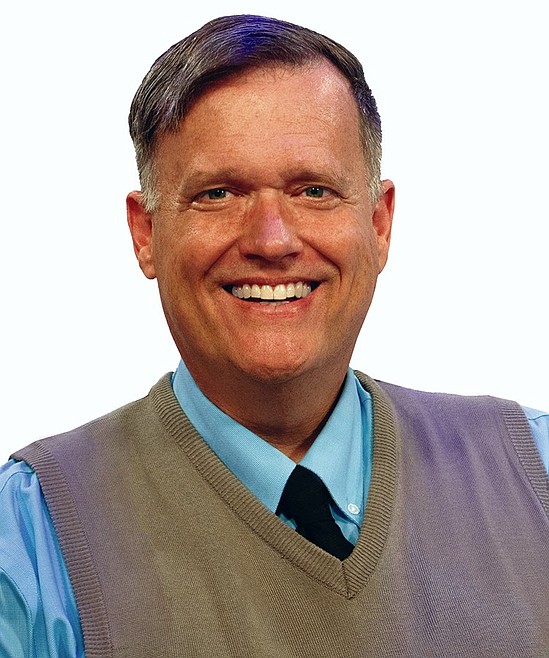Councilman fills in the blanks on his vaccination controversy
Coeur d’Alene Councilman Dan Gookin stands by his social media post that features an image of him holding a blank COVID-19 vaccine card.
The photo, posted on Facebook Tuesday evening, shows Gookin holding the card in his home studio. Health workers hand the cards to vaccine recipients after the initial doses are administered, but not before filling out information on the card, including the brand of vaccine and the date of vaccination.
Gookin’s card, however, boastS no such data.
“Someone on Facebook, who’s a friend, made them, and she gave me a bunch,” he told The Press.
Gookin said he posted the image as a critique against what he described as a path toward a society that requires vaccinations in order to take part in certain functions, a development known as “vaccine passports.”
“We’re going to get to a point where only people who are vaccinated might be allowed into certain buildings or to participate in certain activities, which I think is a complete violation of our civil rights,” Gookin said. “And it’s all predicated on this silly little form.”
The idea behind vaccine passports is gaining ground in certain sectors of American society as the population continues to get vaccinated. For example, a handful of colleges have announced their students enrolling in the fall 2021 semester must be vaccinated against COVID-19, and that proof of vaccination will be required.
After Gookin posted the image, callers and emailers complained to The Press about possible criminal violations. Title 18, Section 1017 of the United State Code states that anyone who re-creates a government seal with fraudulent intent could face up to five years in prison.
“Whoever fraudulently or wrongfully affixes or impresses the seal of any department or agency of the United States, to or upon any certificate, instrument, commission, document, or paper or with knowledge of its fraudulent character, with wrongful or fraudulent intent, uses, buys, procures, sells, or transfers to another any such certificate, instrument, commission, document, or paper, to which or upon which said seal has been so fraudulently affixed or impressed, shall be fined under this title or imprisoned not more than five years, or both,” the law reads.
But Gookin said the post demonstrates the frailty upon which any vaccine requirement can be circumvented.
“It was designed to provoke,” he said. “Would I fill it out? No. Would I try and use it to get in somewhere? No. That would be crossing a line. I would rather protest if that somewhere was discriminating against someone who wasn’t vaccinated, but I wouldn’t encourage anyone to commit fraud.”
But the caption over the photo hinted at a different intent.
“Got my card,” Gookin posted. “Guess I’m sitting in the vaccinated section from now on.”
He told The Press the statement, along with the entire post, was meant to parody what he describes as an alarming trend of virtue-shaming on Facebook, a self-righteous display of I’m-better-than-you.
Gookin also pointed out that having a Facebook friend with the skills to re-create vaccine cards is by no means the only way to get hold of the document, let alone an official copy.
“When these vaccine cards first came up, anyone could make them up, and anyone could forge them,” he said. “Then the [Centers for Disease Control] and [Federal Bureau of Investigation] came out and said, ‘No, no. Don’t put the templates up on the internet. People are going to fake them.’ But those templates are still up. There are government agencies that have PDFs of vaccination cards on their websites.”
A cursory Google search using a handful of keywords produced a long list of websites — many with government domains — that offer printable versions of vaccination cards.
Gookin stressed multiple times throughout the interview against forging vaccination cards, but he added that his post was meant to protest another injustice in the ongoing COVID-19 saga.
“Vaccination passports are wrong,” he said. “It’s a violation of civil rights. You have a right to medical privacy. How can [the government] verify this stuff? There’s no database to show who’s been vaccinated and who’s not...I don’t see how any American would want to enforce that.”

